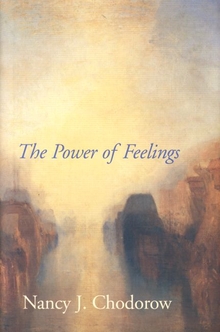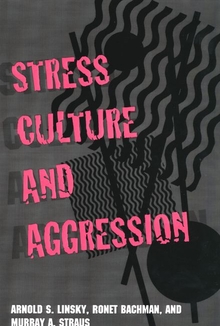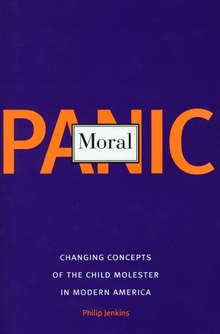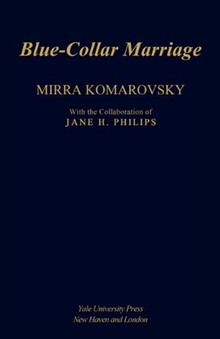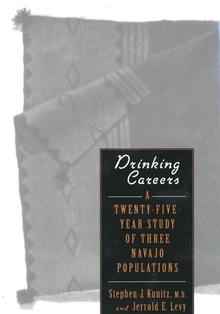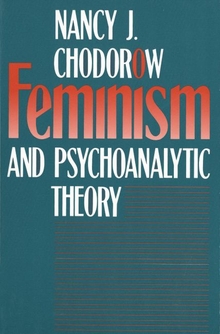The Power of Feelings
WARNING
You are viewing an older version of the Yalebooks website. Please visit out new website with more updated information and a better user experience: https://www.yalebooks.com
Personal Meaning in Psychoanalysis, Gender, and Culture
Nancy J. Chodorow
Out of Print
In this pathbreaking book, Chodorow draws upon her broad knowledge and background in social theory, her feminism, and her experience as a psychoanalyst. In extensively elaborated chapters on psychoanalytic theory, she argues that a psychoanalysis that takes as its starting point the immediacy of unconscious fantasy and feeling found in the clinical encounter can illuminate our understanding of individual subjectivity and potentially transform all sociocultural thought. Creating a dialogue between feminism, anthropology, and psychoanalysis, she holds that feminism, anthropology, and other cultural theories require that psychoanalysts take seriously how cultural meanings help to constitute psychic life. At the same time, psychoanalysis demonstrates that contemporary theories of meaning cannot neglect the unconscious realm, which has just as much power as culture does to create meaning for the individual. Chodorow acknowledges postmodern accounts of the decentering and fragmentation of individuality but argues that psychoanalysis gives us an account of subjectivity that incorporates forms of wholeness and depth of experience, without which we cannot have a meaningful life.
"Nancy Chodorow's enormous impact on the current generation of psychoanalytic theorists and clinicians derives from her remarkable conceptual ability both to hold and explore many different facets of complex problems and, at the same time, to grasp and illuminate the deepest, underlying issues. Her investigation of the generation of personal meaning in The Power of Feelings is an invaluable contribution to our efforts to grapple with the complexities at the interface between individual and culture as the matrix of values and purposes within which we live our lives."—Stephen A. Mitchell, Founding Editor, Psychoanalytic Dialogues
"Nancy Chodorow's The Power of Feelings is a work of extraordinary originality, insight, and theoretical importance. Presenting complex ideas with crystalline clarity, Chodorow develops a theoretical conversation between psychoanalysis, feminist theory, and cultural anthropology that will change the way you look at all of them. This is a true tour-de-force."—Sherry B. Ornter, Columbia University
"In The Power of Feelings, Nancy Chodorow offers a lucid and multi-dimensional contribution to our understanding of psychoanalysis and culture. Chodorow's thesis works insistently in two directions: first, to clarify that emotions shape cultural meanings in singular and irreducible ways, and second, that psychoanalysis must become aware of the cultural meanings it presupposes—including the meanings of gender—if it is to be part of a critical social theory. Chodorow deftly maintains culture and psyche in dynamic interplay. Throughout the text, she proves to be a formidable scholar of scholarly and clinical psychoanalysis, sociology, feminist theory and anthropology, addressing different audiences with extraordinarily provocative and incisive analyses. She asks cultural theorists to consider the ways that emotions are other than cultural effects. She asks psychoanalysts to reconsider the pretheoretical and theoretical assumptions it sometimes makes about gendered bodies and gendered differences. She asks both psychologists and sociologists to be wary of developmental and structural theories that prejudge what we can find out about the psychic reality of men and women. And she shows the academic audience how the clinical encounter is crucial to the understanding of all psychoanalytic categories. Indeed, she offers one of the most persuasive arguments I have seen for the centrality of the transference not only to psychoanalysis, but to any understanding of psychic reality. Chodorow argues with indisputable power that all gendered meanings are subject to psychic interpretation, and she challenges all of us to rethink the process by which such meanings are made. In these pages, Chodorow proves once again that she is an interlocutor whom no student of human psychic and social reality can do without."—Judith Butler
"This volume is an original, lively, exciting excursion in the complex field of the construction of person meanings out of the confluence of unconscious conflict and fantasy, the internalization of earliest relationships with significant others, and the fantasy structures and ideological systems derived from the cultural influences that infiltrate human experience from its very birth. Nancy Chodorow confronts cogently the dialectic between personal construction of the meaning and the impersonal structures of human psychological development, the dialetic of intersubjectivity as contrasted to the depths of intrasubjective creativity, and moves freely yet critically, flowing yet precisely in between the formulations of alternative contemporary psychoanalytic contributions to this field, and ethnographic and cultural anthropological analyses. This book is an outstanding contribution to the evolving area of the application of psychoanalytic thinking to cultural and social concerns, with a particular emphasis on the psychodynamic and cultural construction of gender and its socio-political implications. It is a fresh contemporary reflection of what psychoanalytic understanding has to contribute to the psychology of 'normality.' In the sense of the construction of personal meaning, and the joy of living."—Otto F. Kernberg, Director, Personality Disorder Clinic
"Nancy Chodorow occupies, with a perfect mixture of grace and brilliance, a unique place in psychoanalytic and cultural writing about gender. In a professional life striking for its radical journey across fields and practices, she has been actually quite consistently struggling with one central problem: the variable forces of individual and forms in the construction of human experience. Sociologist, anthropologist, psychoanalyst: these categories of professional identity do not begin to capture her deep and creative immersion in the subtleties of these practices as well as her capacity to interrogate what it means to develop personal meaning and what it means to be inhabited by and inhabit some cultural forma ; This book demonstrates the power of clinical listening lived in the heart of the transference where the tension between inside and outside, culture and psyche lives and reverberates."—Adrienne Harris
"The Power of Feelings . . . has much to offer feminists both inside and outside the academy in the form of an incisive critique of postmodern trends. . . . Chodorow's new book does more, however, than bring us up to date on current practices in psychoanalysis. The Power of Feelings also presents a major revision of her earlier suppositions about gender identity. Although Chodorow herself emphasizes points of continuity, many readers will be surprised. Some may even be shocked. . . . The Power of Feelings allows us to appreciate the difference between psychoanalysis as a universalizing theory and psychoanalysis as therapeutic practice."—Mari Jo Buhle, Women's Review of Books
"An engagingly sincere piece of soulsearching by a widely respected psychological theorist. . . . Three cheers for Nancy Chodorow for doing what she can to move the elephantine Freudian establishment a few inches closer to a psychology of joyous diversity."—Theodore Roszak, San Francisco Examiner & Chronicle
"In this insightful and immensely valuable account, Chodorow synthesizes complex theoretical terrain in anthropology, psychoanalysis, and feminist theory, and argues that psychoanalysis offers a theory of subjectivity—or individual experience—that is not found elsewhere in feminist or social thought."—Rachel Conrad, Radcliffe Quarterly
"Chodorow is ambitious and scholarly in her project, appreciating and arguing closely—tackling theoretically the very essence of the experience of being fully alive, meshing the power of feelings with the vitality and uniqueness of unconscious fantasy, and blending clinical and theoretical knowledge of psychoanalysis with her earlier commitments: feminist thought, sociology, and anthropology. . . . This is a terrifically interesting book that I hope will be assigned in many a psychoanalytic seminar, will influence our analytic ambiance, and provide endless good conversation about what it means to be human."—Rosemary H. Balsam, Psychoanalytic Quarterly
"An admirable and ambitious book."—Linda M. Blum, Theory and Epistemology
"In The Power of Feelings, Nancy J. Chodorow convincingly pleads the case for depth psychology and psychoanalytic interpretation. A courageous and ambitious book."—Diana Tietjens Meyers, American Journal of Sociology
Publication Date: September 10, 1999

